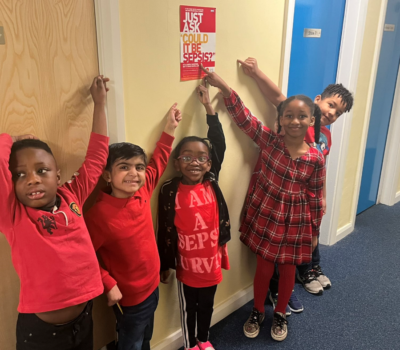

“Artificial Intelligence (A.I)… is going to rip through this economy like a tsunami,” Tom Wilson, CEO of The Allstate Corporation, recently said on Bloomberg TV. Additionally, automation will affect a broad swath of workers, from traders to taxi drivers according to McKinsey & Co., the global management consulting firm. The upshot will be an estimated 400 million people worldwide will be out of work by 2030 as technology takes their jobs.

Professor Yuval Noah Harari echoes these projections in his recent book ‘Homo Deus: A Brief History of Tomorrow.’ Harari sets out his vision for the near future – the next 20 to 30 years. Most significantly, he predicts A.I algorithms will dominate decision making, and that there will be a greater dependence on a robotic workforce, leading to the development of a ‘useless class’ of people. Professor Harari’s book has achieved a similar disruptor status to the world of work, as Uber, Airbnb, SpaceX, the shift towards plant-based-diets and many more disruptor businesses and trends have attained in the global economy. Most importantly, Harari has alerted us to the fact that we cannot walk into the future blind – especially as the future is so close – and we need to start preparing for the impending changes now. So that means preparing our children.
I have two grandchildren aged seven months and two years, and like all of today’s children, their lives will be impacted by these unprecedented changes. Knowing this brings into sharp focus the need to understand what they will be required to learn, the type of work they will undertake, how they will live as a family, as a social group, in this global society of a techno-driven internet-of-things world where capitalism will become even more based on fear. Moreover, what of their relationships with traditional institutions such as religion, politics, and commerce, and how in the future they interact with nature, the environment and our world — planet Earth.
We owe it to them and ourselves — children are our future after all — to start preparing them for these changes through their education, in its broadest sense. For me, I believe giving a child a solid grounding in a definite set of values is an optimistic place to start whatever the future brings.
Why? Because the holding of positive values for children and adults alike is essential. Values underlies everyone’s thought processes, or how they react to situations or respond to information. They are principles that drive our behaviour; they influence our actions and attitudes and become our framework for living. They affect our relationship with ourselves and others. Values shape our responses and are especially important when we have to deal with stressful situations – like the coming A.I world. By acquiring constructive values children are empowered, they will be able to make better decisions, and be more likely to overcome challenging issues. A set of positive values is the most significant legacy any parent can leave their child. As such, the development of positive values at an early age is the place to start.
This realisation motivated me to write the Billy Growing Up series of books. Up to the age of seven children learn from their immediate family in general and parents in particular; this changes from eight years onwards. Children find their middle-grade years a confusing time with an abundance of conflicting information coming from a variety of sources including family, friends, peers, teachers, television and the internet. However, as the values they adopt now, provide guidance on the journey towards adulthood, middle-grade years are crucial in a child’s development. At this point too, eight to eleven-year-olds are becoming independent readers, and are encouraged by schools to choose reading materials for themselves. These two facts determined my target age group for the Billy books.
The list of positive values runs into hundreds, and though they help all of us to develop a more precise sense of what’s most important in life, at the middle-grade age such a list is overwhelming. I chose eight values which I believe are fundamental to a child’s emotional health—empathy (or lack of it-bullying), pride, jealousy, lying, stealing, self-belief, the value of money, and keeping secrets.
Using traditional storytelling with a moral or value-based plot, each book aims to move a child along the path towards being emotionally balanced and thinking positively. The stories illustrate, guide and shape their understanding.
But in this complex, ever changing world children can’t do it alone – they need guidance and support from significant adults to assimilate the values. The Billy Growing Up series are stories for children but in order for them to really make a differences, they need to be discussed with adults. That’s how children learn to move forward with more understand and specific tools to be adaptable to the changes they’ll face in their future. With this in mind, Included within each book is a chapter for adults – a specific learning – enabling the books to act as ice-breakers for parent-child discussions in a safe environment.
We know that the future is coming and that it will be very different from today. Developing children with a positive outlook and ways of behaving is our significant step toward a future where we can all thrive, be fulfilled and enjoy the amazing fruits of our collective efforts but not at the expense of our world.
You can find James’s books here:
https://www.goodreads.com/author/show/6580478.James_Minter
https://www.amazon.com/-/e/B00735B54U